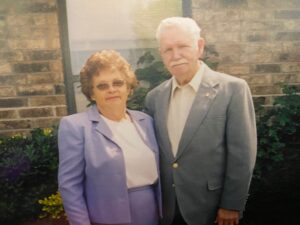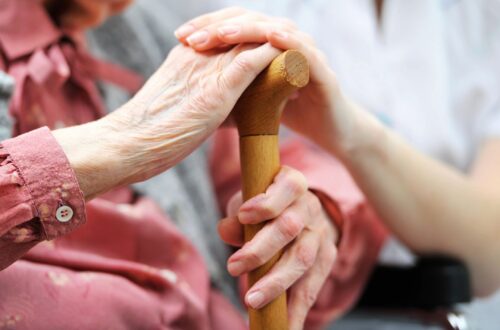Myths About Parkinson’s
My Dad had Parkinson's disease. I had never been around anyone who had Parkinson's before dad. I knew next to nothing about it except the famous Parkinson's shake.
As a result, I didn't handle everything perfectly. (I probably wouldn't have done it perfectly even with all the information in the world!) But, there are things I could have done better.
All we can do is keep learning and applying our new knowledge for the benefit of others. To that end, I felt the need to write some Myth Busters about Parkinson's disease specifically. First, here's an old pic of my sweet Mom and Dad before the diagnosis.
Myth #1 Since Dad had Parkinson's, I'll get it too.
False. Parkinson's is not typically hereditary. Certain environmental factors, such as significant exposure to pesticides or certain heavy metals and repeated head injuries, can increase the risk of Parkinson's.
Myth #2 Tremors are the only symptom.
False. Tremors and joint stiffness are symptoms, but it also manifests in non-motor symptoms, including sleep problems, constipation, anxiety, depression, and fatigue, among others. Loss of sense of smell, eye and vision problems, lightheadedness, melanoma, and gastrointestinal issues are also common.
Myth #3 Parkinson's only affects older people.
False. Most people who develop the symptoms of Parkinson's disease do so sometime after age 50, but Parkinson's disease can affect younger persons as well. Approximately 10% of Parkinson's diagnoses occur before age 50, which is called Early Onset (or Young Onset) Parkinson's disease.
Myth #4 There's nothing you can do to slow it down.
False. We can do plenty of things to slow the disease, such as walking, seeing an occupational therapist, and deep brain stimulation.
Medications can help manage the symptoms, but there is no cure. Proper nutrition and exercise are the best non-medical ways to slow the progression.
Many of the medications administered have terrible side effects, so be sure to watch for added agitation, hallucinations, or other unusual behavior after administering drugs.
There is still joy to be had after a diagnosis, and many people are able to function for several years without assistance.
Preparation makes for a much easier journey!
Keep looking up, my friends.




